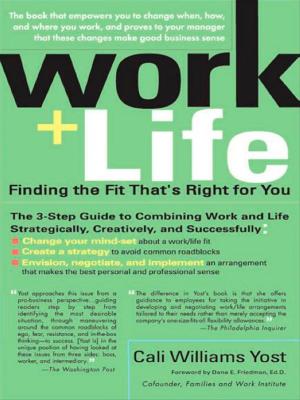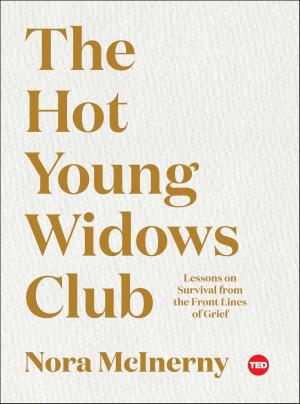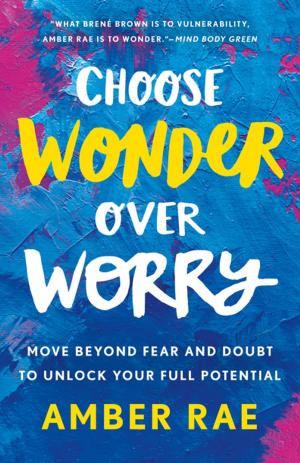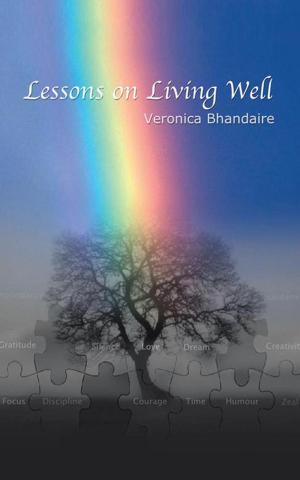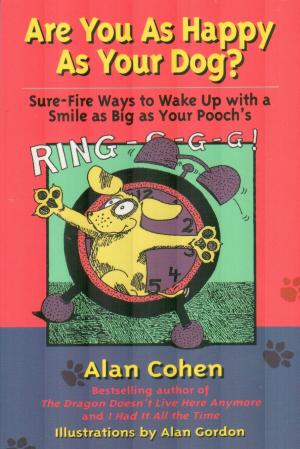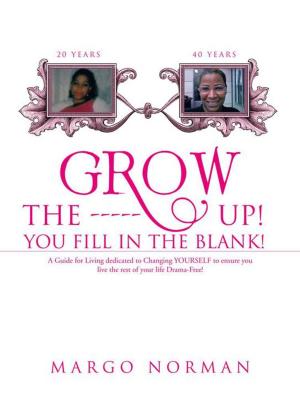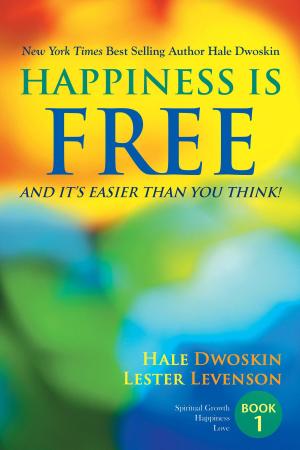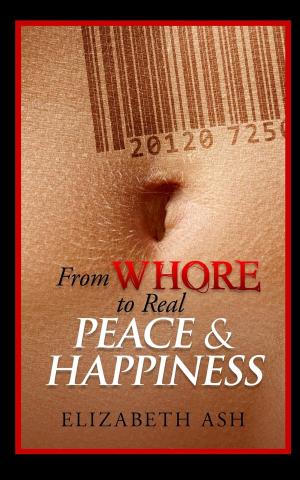When Harry Met Godzilla
How Hollywood Genres Hold the Key to Your Personality (And Everybody Else's Too!)
Nonfiction, Health & Well Being, Self Help, Mental Health, Happiness| Author: | Garry Leonard, Deirdre Flynn | ISBN: | 9780987806215 |
| Publisher: | McNally Jackson Books | Publication: | August 11, 2013 |
| Imprint: | Language: | English |
| Author: | Garry Leonard, Deirdre Flynn |
| ISBN: | 9780987806215 |
| Publisher: | McNally Jackson Books |
| Publication: | August 11, 2013 |
| Imprint: | |
| Language: | English |
Whether it's the cute guy or girl at Starbucks returning your glances, or you're trying to tune-up a marriage, this book offers a way to begin a conversation ("what are your favourite movies?" Easy!) that will give you instant clues as to compatibility and likely goals and principles of a longtime partner or a new flirtation. Have ytou ever had an argument that just doesn[t seem to be about what it's about? chances are your "genre narratives" are clashing. You're saying "tomatoe" and she's saying "tomahto". Both of you are hearing statements as threats, even if you intend them as neutral declarations of your point of view on a given topic. Understanding your preference for one Hollywood genre over another can shed light on commonly unexplored—yet vitally important—aspects of your personality personality. By identifying with characters who are like us and by empathizing with characters who are completely different from us, we gain insight into ourselves and into the way we interact with others. We also see what happens when characters make important choices: some knock them off balance, and others help them regain balance. At the heart of nearly every Hollywood hit ever made – be it a Romance, Melodrama, Film Noir, Horror, Western, or Science Fiction movie – is a quest for balance Typically, the narrative begins when the lead character is knocked off balance by a chance encounter with a person or event that challenges the status quo. Depending on the genre, this might be an encounter with a soul mate, a financial crisis, a femme fatale, a monster, an enemy, or an alien/machine. The protagonist then spends the rest of the movie either regaining his/her balance and finding a clear resolution (offering us a solution)or going into lock-down in some destructive pattern that virtually guarantees death (offering us a cautionary tale). Watching this bumpy ride from chance encounter to resolution or lock-down, we spectators are able to identify with characters who more or less skillfully manage the ups and downs. In the process, we are able to reorient ourselves relative to our own choices and priorities. Whether they are about cowboys on the high plains or women fighting to keep their families together, genre movies actually depict our own stories, borrowed from us by the Hollywood studio system. Hollywood genre films tell us tales we recognize, give us characters with whom we identify, and show us how the choices characters make generate their stories. We may get different actors, settings, and details, but in genre films, we get the same story, re-told again and again. While we watch this story, we get to envision our own life story for ourselves. For instance, when we watch a Romantic Comedy, we envision our ideals of courtship, romance, and love. When we watch a Western, we envision our ideals of strength, work, and integrity. We see our Romance or Western heroes face challenges and find resolutions, and we see them generate their story as they do so. In this book, you will read examples of how this story is told, with variations, in six of the most popular movie genres, and you’ll see what happens when real people—hundreds of whom were interviewed for this book—transfer these narratives to their unscripted, off-screen relationships. By completing the genre survey and reading about how movie characters in each genre respond to crises and regain their balance, you’ll learn to recognize the movie genres that most closely reflect your personality. In addition, by seeing how real people begin to notice their internal scripts and use this awareness to improve their lives and relationships, you will learn how to recognize your own scripts—both the productive ones and the destructive ones. In so doing, you will gain insights into how to make decisions that allow you to find your balance when you falter. Bottom line, this book will give you "final cut" in that ultimate blockbuster: your life
Whether it's the cute guy or girl at Starbucks returning your glances, or you're trying to tune-up a marriage, this book offers a way to begin a conversation ("what are your favourite movies?" Easy!) that will give you instant clues as to compatibility and likely goals and principles of a longtime partner or a new flirtation. Have ytou ever had an argument that just doesn[t seem to be about what it's about? chances are your "genre narratives" are clashing. You're saying "tomatoe" and she's saying "tomahto". Both of you are hearing statements as threats, even if you intend them as neutral declarations of your point of view on a given topic. Understanding your preference for one Hollywood genre over another can shed light on commonly unexplored—yet vitally important—aspects of your personality personality. By identifying with characters who are like us and by empathizing with characters who are completely different from us, we gain insight into ourselves and into the way we interact with others. We also see what happens when characters make important choices: some knock them off balance, and others help them regain balance. At the heart of nearly every Hollywood hit ever made – be it a Romance, Melodrama, Film Noir, Horror, Western, or Science Fiction movie – is a quest for balance Typically, the narrative begins when the lead character is knocked off balance by a chance encounter with a person or event that challenges the status quo. Depending on the genre, this might be an encounter with a soul mate, a financial crisis, a femme fatale, a monster, an enemy, or an alien/machine. The protagonist then spends the rest of the movie either regaining his/her balance and finding a clear resolution (offering us a solution)or going into lock-down in some destructive pattern that virtually guarantees death (offering us a cautionary tale). Watching this bumpy ride from chance encounter to resolution or lock-down, we spectators are able to identify with characters who more or less skillfully manage the ups and downs. In the process, we are able to reorient ourselves relative to our own choices and priorities. Whether they are about cowboys on the high plains or women fighting to keep their families together, genre movies actually depict our own stories, borrowed from us by the Hollywood studio system. Hollywood genre films tell us tales we recognize, give us characters with whom we identify, and show us how the choices characters make generate their stories. We may get different actors, settings, and details, but in genre films, we get the same story, re-told again and again. While we watch this story, we get to envision our own life story for ourselves. For instance, when we watch a Romantic Comedy, we envision our ideals of courtship, romance, and love. When we watch a Western, we envision our ideals of strength, work, and integrity. We see our Romance or Western heroes face challenges and find resolutions, and we see them generate their story as they do so. In this book, you will read examples of how this story is told, with variations, in six of the most popular movie genres, and you’ll see what happens when real people—hundreds of whom were interviewed for this book—transfer these narratives to their unscripted, off-screen relationships. By completing the genre survey and reading about how movie characters in each genre respond to crises and regain their balance, you’ll learn to recognize the movie genres that most closely reflect your personality. In addition, by seeing how real people begin to notice their internal scripts and use this awareness to improve their lives and relationships, you will learn how to recognize your own scripts—both the productive ones and the destructive ones. In so doing, you will gain insights into how to make decisions that allow you to find your balance when you falter. Bottom line, this book will give you "final cut" in that ultimate blockbuster: your life


